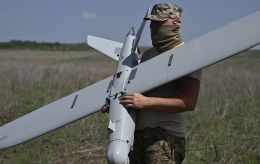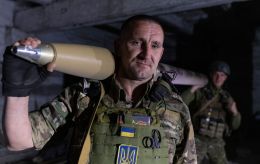Frontline youth: Inside the volunteer defense of Chasiv Yar
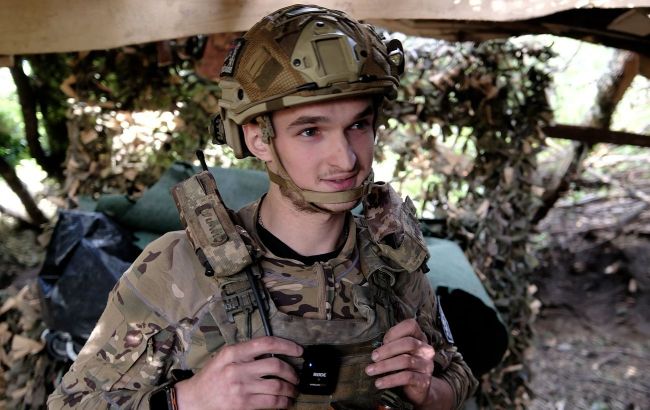 The commander of the D-30 Mechanic near Chasiv Yar (all photos: Vitalii Nosach / RBC-Ukraine)
The commander of the D-30 Mechanic near Chasiv Yar (all photos: Vitalii Nosach / RBC-Ukraine)
Read and watch in the RBC-Ukraine report how twenty-year-old Ukrainian volunteers are holding back the Russian advance on Chasiv Yar in Donbas, and the story of a captured Russian soldier whose commander ordered him to zero out his own men.
- My whole family is military. I have six brothers, and all of them are fighting. Each on a different front. Some are in Pokrovsk, some in Kherson, some here, some in Zaporizhzhia. So I enlisted as soon as I turned 18. Back in 2014, when I was in fourth grade, I already wanted to be in the army. So I think my dream came true, says Mechanic, a 21-year-old gun commander.
We are at the artillery position of the 101st Separate Security Brigade of the General Staff near Chasiv Yar. Their weapon is the good old D-30 howitzer, which they camouflage, maintain, and protect from enemy drones every day.

Chasiv Yar is a small city in the Donetsk region, located 10–12 km from Bakhmut. Since 2022, its role has become critically important: it is a logistical and tactical hub that supports all logistics in this direction.
When the Russians launched their offensive on Bakhmut at the end of 2022, Chasiv Yar became a key stronghold for the Ukrainian Armed Forces to hold the city and defend the approaches to Kramatorsk and Sloviansk. Losing it would open the way for the enemy to move further west in the Donetsk region.
In recent months, Chasiv Yar has remained one of the most heavily shelled areas of the front line. Fighting continues over the industrial zone, forest strips, and canals. The Russians claim “gains,” but the Ukrainian Armed Forces repel assaults and carry out counterattacks using drones and artillery.
The city is heavily damaged: few civilians remain, and the infrastructure is barely functioning.
Together with the artillerymen, we went down into a dugout — a network of underground passages, tunnels, and shelters that they had dug and reinforced by hand. It smells of earth, wood, and gunpowder. This is where the soldiers joke around, rest, and are ready at any moment to rush to their position and fire.
One of the fighters, "Mishka", is just 19. As soon as he turned eighteen in August 2024, he joined the army. He says he couldn’t stay in civilian life.
- It’s kind of more fun here. Here, everyone has each other’s backs. My motivation was to make sure my brothers and sisters wouldn’t see war, that I would carry this burden as the oldest. I have two brothers and three sisters. At first, my parents were against it. Then they accepted that nothing would change my mind and agreed.
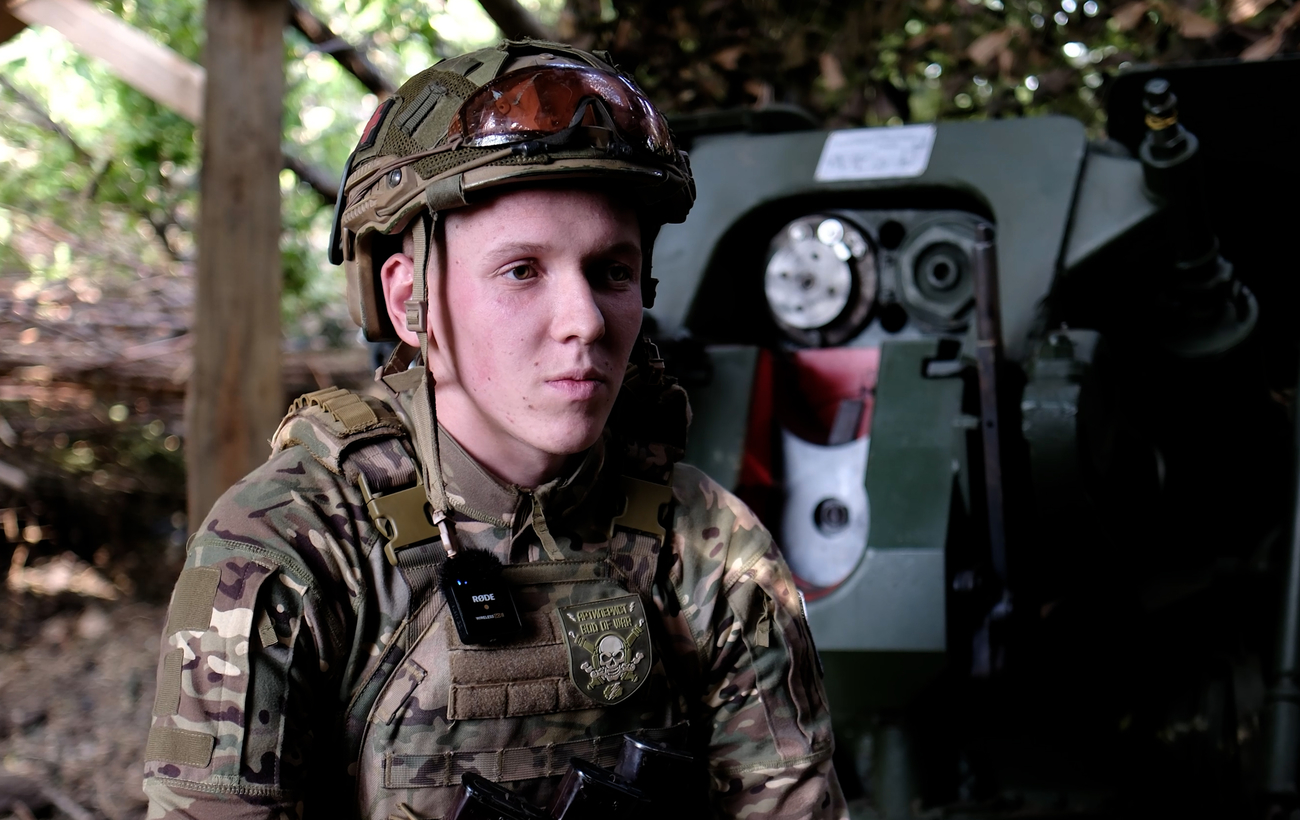
Fighter "Mishka"
Young and all they’ve got – these are guys aged 19 to 25. They say there’s no time to think about what comes next: they just have to keep working until the enemy breaks through.
The young soldiers are motivated to defend their homeland. For the most part, they don’t dwell on what the future holds.
– Yes, maybe youth is passing us by. But in this situation, we have to defend the country, – says Mishka.
Life next to the D-30: "The howitzer burns branches – and nerves"
A command comes through the radio: to battle. We sprint to the position – just a few seconds – and the work begins. The crew moves in sync, every action honed to muscle memory.
– Seems like the Russian movement was just detected, so we need to hit hard, – says Mechanic.
Along the underground corridor, the soldiers run one after another – some toward the howitzer, others to prepare the ammunition. The shell is quickly brought to the gun.
– Howitzer! Fire!
For a few seconds, everything around lifts into the air and freezes, as if in a scene from The Matrix. A ringing in the ears. Another second, and the work resumes. Another shot must be fired. The pace is intense. That can only mean one thing – the enemy is on the move.
– We’re firing on infantry right now, – says the gun commander.
Working with the D-30 howitzer is tough and dangerous. It’s hard to keep it hidden.
– It’s hard to cover this gun. Every day we go out, cut branches, cover them, and start over again because they dry out. When we fire, the camouflage nets catch fire, the commander explains.
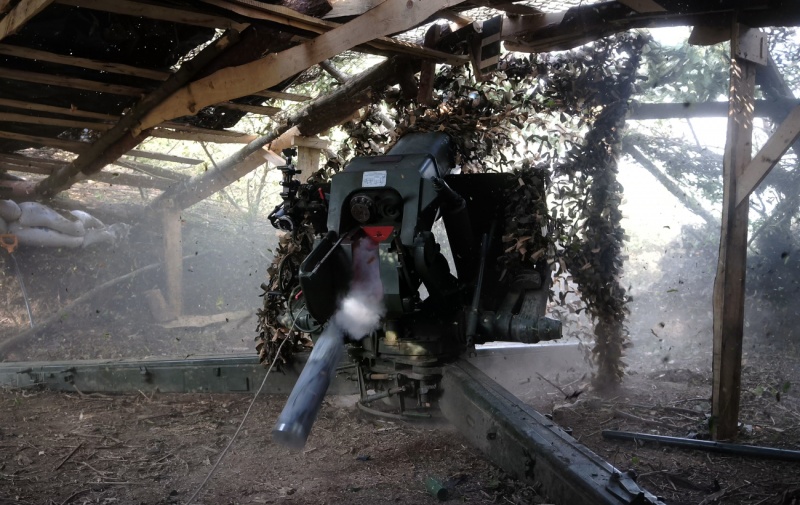
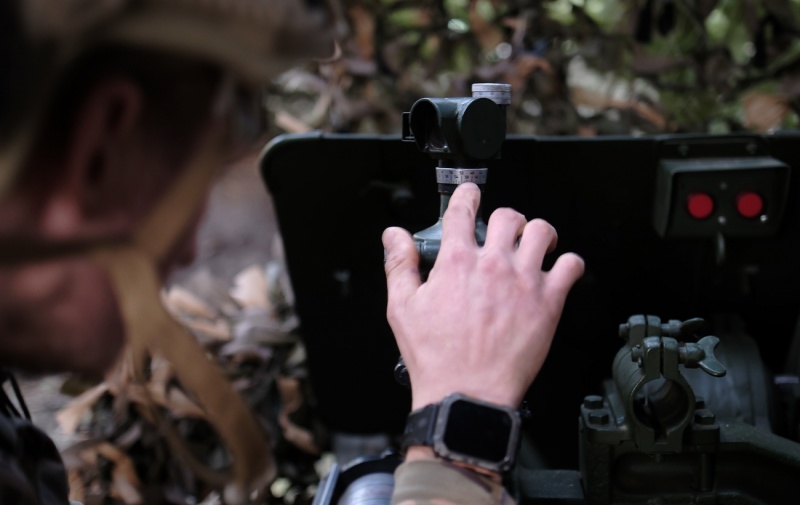
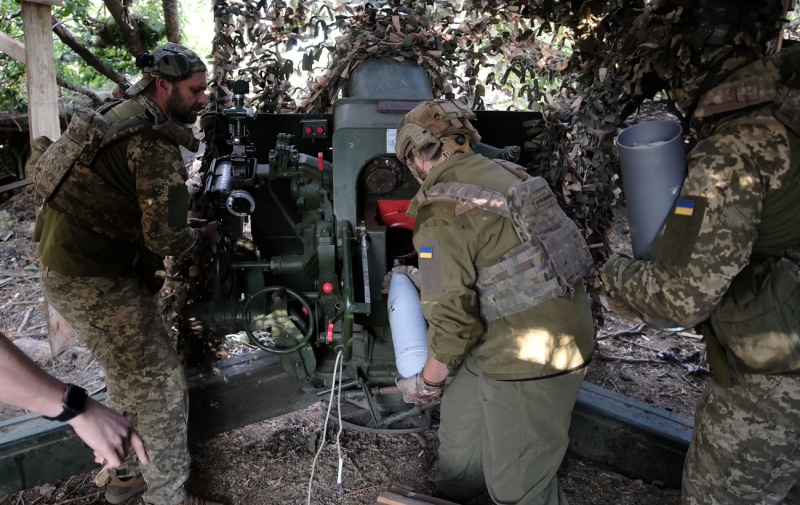
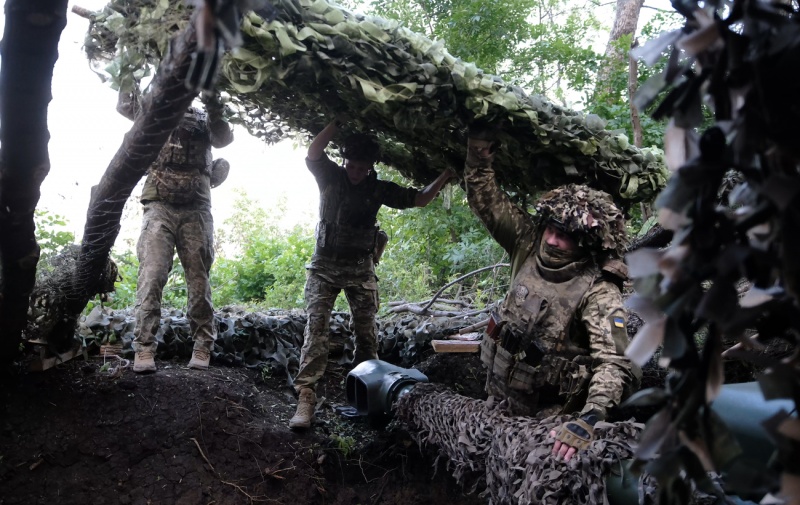
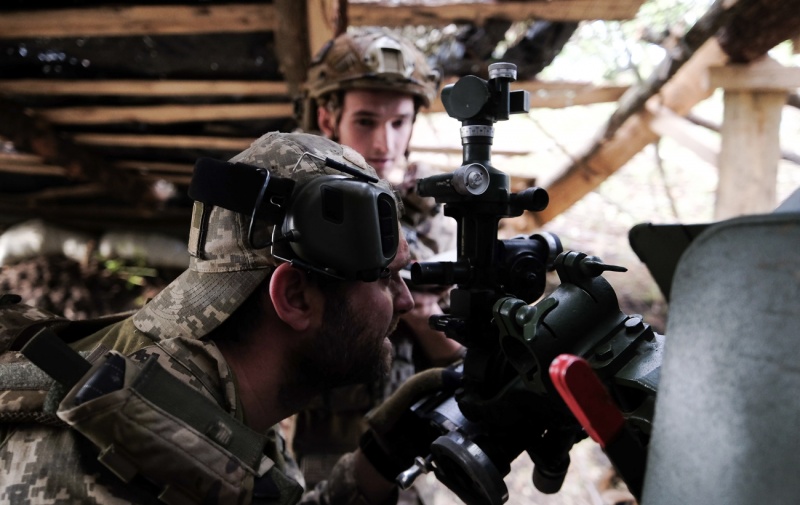
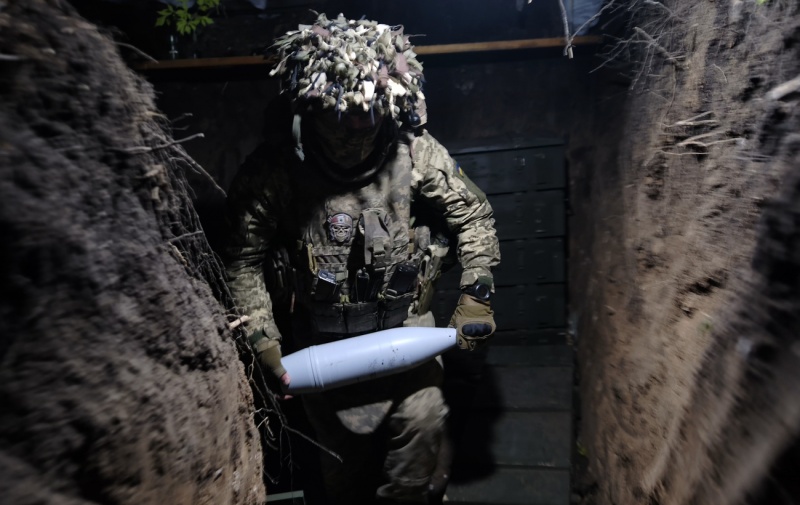

The guys say they now have to do everything from shelters because of the large number of enemy drones. And every rotation is different from the previous one.
– Last time, we positioned the D-30 howitzer simply in an open grove, but now we hide it in dugouts, constantly digging, – says the gun commander.
One of the guys demonstrates how they load the howitzer. It’s clear how much care and respect they have for their weapon.
"The enemy is strong, but we hold our ground"
The soldiers say the war now is mostly fought with drones, artillery, and mortar systems.
– Our unit now has a platoon of unmanned aerial systems. We didn’t have one before. Now it works greatly in our favor because the guys are experienced. Many of them were infantry for a long time; they know how it works and where the Russians are positioned or might be gathering, – one soldier explains.
On this front, the enemy presses every day. They have many more people, drones, and weapons, but the Ukrainian military holds firm.
– From interceptions, we found out the Russians have long planned to take Chasiv Yar. But we stay in constant contact with neighboring units and hold the line together as best we can, one of them says.
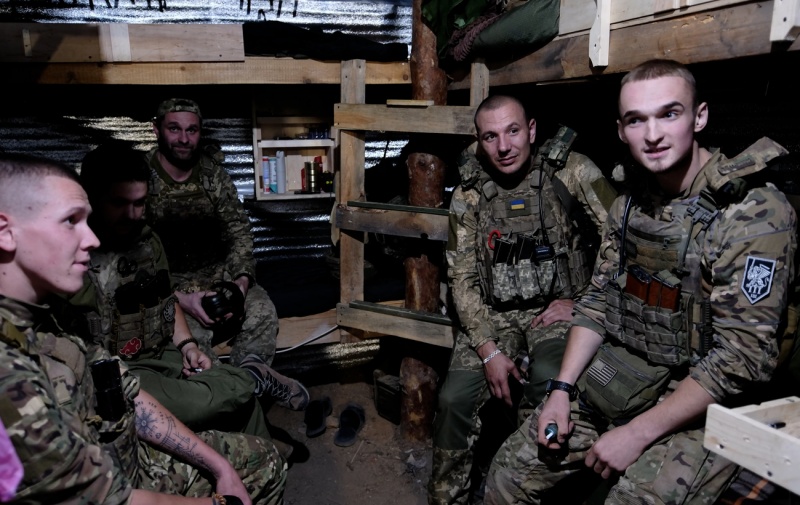
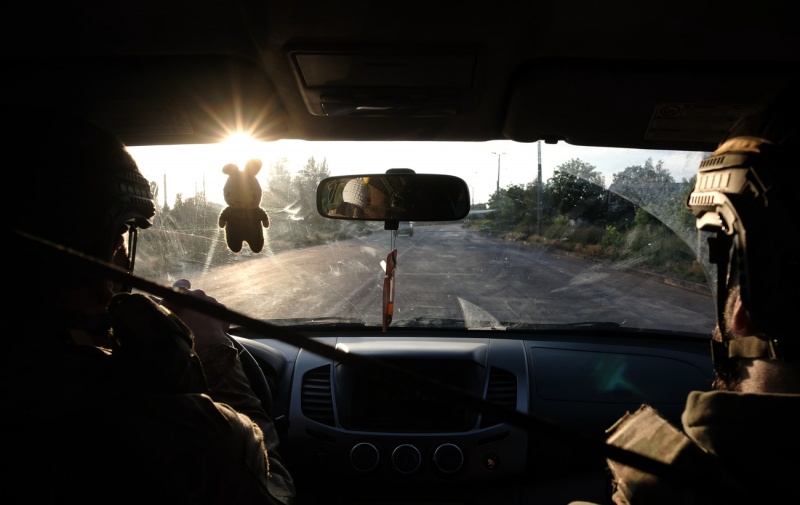
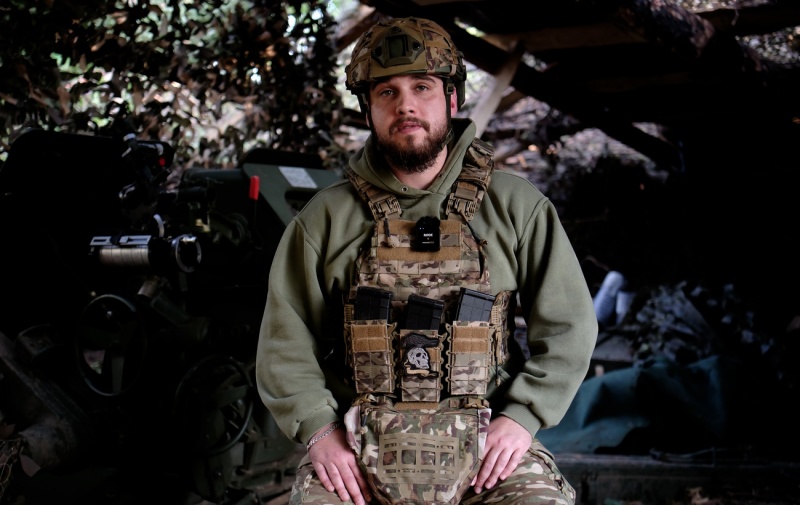
How they captured a prisoner using a drone
Drones now play a crucial role in planning various operations. Recently, soldiers of the 101st Guard Brigade of the General Staff carried out such an operation—they captured a Russian soldier.
– The operation was prepared for a long time. The Russians were sitting in a bunker. We disturbed them with a drone and everything we could. The last one left there, wounded, voluntarily surrendered. That was the first time the third guard battalion captured a Russian soldier using a drone. Yes, a drone! He wrote us notes, and then with the help of the drone, we led him to our positions and handed him over in stages to the 24th brigade, – one of the soldiers recounts.
Using the drone, they guided the prisoner through all of Chasiv Yar. He was a paratrooper from the Russian Armed Forces, originally from Moscow, young, and he spoke about his service and the crimes committed by Russian commanders against their own troops.
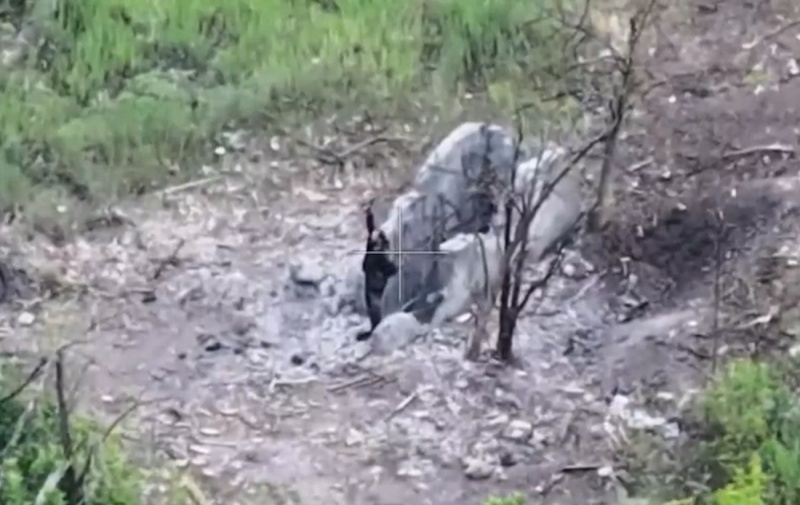
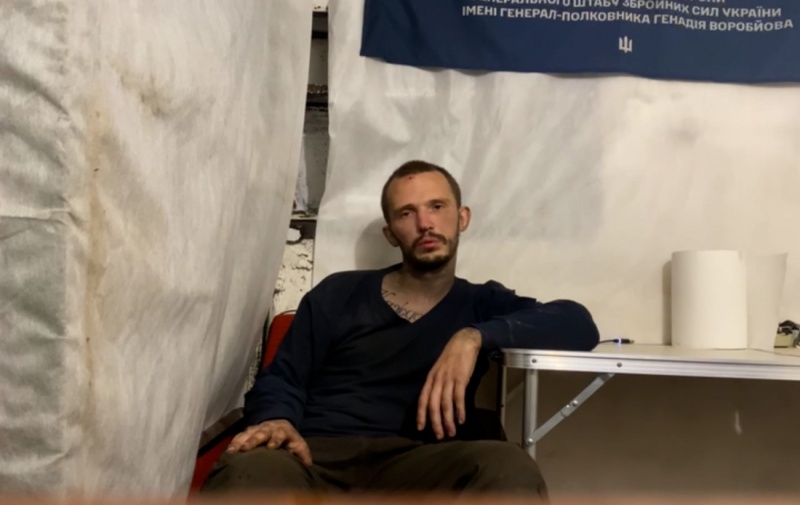
Here is the direct speech of the prisoner:
– I was a medic at the factory (local location, editor’s note). For one and a half months. Sometimes, I went out a couple of times for the wounded. Once, I ran out and carried someone. But all the other times I met them at the factory.
– Were you a witness to war crimes?
– The order from our company commander was to “zero out” two people from our own company because they didn’t retrieve a wounded soldier. I was the first to go after him. They were sitting there, listening to music, recording videos. They didn’t retrieve him. The next day, we went after him. I showed them the way: here are mine, here are mine. I ran across an open area and got under cover. Waited for two hours—no one came. It turned out they went back. The next day, we went after them. They were drunk for some reason. They were brought to the stabilization point, hands tied. The commander said: if you don’t take them down now, I’ll come and do it myself, – the Russian prisoner recounts and adds that such cases happen very often in the aggressor’s army.
– Why did you decide to surrender?
– I clearly understood: either I would die like that, or I would simply rot. There was no water, and nothing was dropped to us. I asked for medicine—nothing. The second battalion dropped us water. Our commander said they wouldn’t do anything.
– What would you like to say to your compatriots about this war?
– I understood it was a war, but I didn’t understand what it really was. Guys, don’t even think about coming here. Just don’t. Live your lives as you do.
